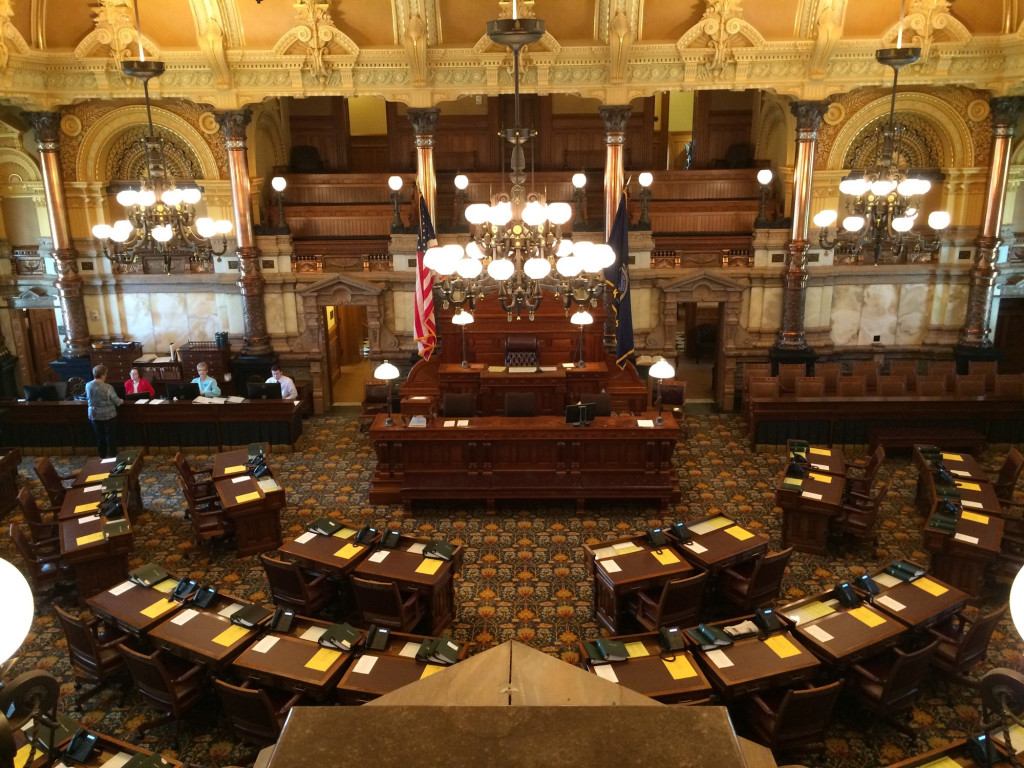US tech leaders testify before congress on AI and global competition
The hearing, titled ‘Winning the AI Race: Strengthening U.S. Capabilities in Computing and Innovation,’ focused on the United States’ position in the global artificial intelligence (AI) landscape, particularly in relation to China’s advancements.

On 8 May 2025, leading figures from the US technology sector testified before the Senate Committee on Commerce, Science, and Transportation, testifying on a question now shaping global affairs: who will define the future of artificial intelligence? The hearing, titled ‘Winning the AI Race: Strengthening U.S. Capabilities in Computing and Innovation,’ featured testimonies from OpenAI CEO Sam Altman, AMD CEO Dr. Lisa Su, Microsoft President Brad Smith, and CoreWeave CEO Michael Intrator.
Altman told senators that AI is no longer a promising frontier – it is already altering the fabric of society. ‘This may be bigger than the internet,’ he said. With that, he laid down a challenge: without urgent investment in infrastructure and energy, the United States would risk watching from the sidelines as others set the terms of this transformation.
Next to him, Lisa Su, the architect behind AMD’s rise as a chipmaking force, warned of unintended consequences. Recent US export controls aimed at restraining China’s access to advanced semiconductors, she said, could end up pushing other nations into China’s orbit. ‘If we can’t provide the technology, someone else will,’ she remarked.
Brad Smith, president of Microsoft, took a sharper edge. The company had recently banned the use of DeepSeek, a Chinese AI system, among its employees, a decision he explained as a matter of digital hygiene in a world where trust in software has geopolitical implications. Regulation, he argued, must not be heavy-handed, but nimble and intelligent. If American innovation is to thrive, it needs room to breathe.
CoreWeave’s Michael Intrator brought it back to the practical. Complex permitting rules, patchwork state policies, and sluggish government timelines were, he said, becoming obstacles to progress. A unified national framework, he insisted, would be better than navigating fifty separate ones.
Behind these testimonies was a current of anxiety not easily dispelled by scripted optimism. China, senators noted, is racing toward AI dominance with state-directed intensity. The European Union, too, is carving its own regulatory path. In contrast, the United States must choose between unleashing its entrepreneurial spirit or stifling it through indecision.
The hearing underscored bipartisan concern over the United States’ ability to maintain its leadership in AI amidst growing competition from China and the European Union. China, senators noted, is racing toward AI dominance with state-directed intensity. The European Union, too, is carving its own regulatory path. In contrast, the United States must choose between unleashing its entrepreneurial spirit or stifling it through indecision.
Senator Ted Cruz framed it starkly: Will America remain the country of free invention, or begin mimicking the command-and-control reflexes of its rivals? On the other side of the aisle, Senator Tammy Duckworth lamented past budget cuts to federal research agencies, invoking a hypothetical in which shortsightedness might have killed the very project that birthed the internet.
And yet, amidst the ideological jabs, a quieter consensus took shape. Lawmakers and executives alike spoke not of profit margins or quarterly forecasts, but of values, of fairness, accountability, and global trust. It was here that the discussion turned reflective.
Altman spoke of a vast data centre rising in Abilene, Texas, a collaboration between OpenAI, Oracle, and energy providers. Powered by wind and sun, it will soon become the largest AI training facility in the world. He praised Texas for its foresight but warned against a future where each state sets its own rules. “We can’t comply with fifty different frameworks,” he said. “We need one smart one.”
Beyond infrastructure, the hearing touched on power itself, not just electrical, but political. The Department of Energy estimates data centers could consume up to 12% of national electricity by 2028. AI, it seems, is not just a computational challenge—it is a resource one.
As the session drew to a close, Senator Brian Schatz of Hawaii summed up the unease with eloquent simplicity: ‘There is a race, yes. But we need to understand what we’re racing for. It’s not just about beating China or Europe. It’s to make sure the values we believe in—pluralism, freedom, accountability—are written into the code that will shape the next century.’
For the average citizen, this may seem distant. But what played out in that room will ripple into daily life—into the tools we use, the jobs we do, and the information we trust. The future of artificial intelligence is not being built solely in Silicon Valley, Brussels or Beijing. It is also being shaped through careful discussions in congressional hearings, where technology and policymaking increasingly intersect.


